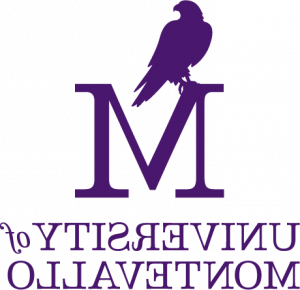Student Conduct Hearing Process
Conduct cases are adjudicated within the Office of Student Conduct and heard by a Conduct Educator or the University Conduct Council (UCC). Due to the explicit content and risks involved in such complaints, all conduct cases involving certain acts of violence, certain threats of violence and sexual misconduct (not Title IX) will be heard by the Conduct Educator or the University Conduct Council.
The Complainant in cases involving violence, threats of violence, sexual misconduct or abuse, domestic and/or dating violence, or stalking will receive the outcome of the case including pathway projects/sanctions assigned.
Hearings
The Conduct Educator or the University Conduct Council will hear information related to the case and determine if a violation has occurred. If so, they will determine what appropriate accountability measures should take place including a student’s or student organization’s conduct status. The conduct status is not noted on a student’s academic transcript, it is only a part of their student conduct record. Decisions of UCC hearings are based on a majority vote of the UCC membership hearing the case and shall be based exclusively on the information presented. The burden/standard of evidence used to determine responsibility is the preponderance of the evidence or 50.01%.
Hearing decisions are reported in writing to the Respondent within three business days. In cases involving violence, threats of violence and sexual misconduct, both the Complainant and the Respondent will be notified of the final decision and pathway projects/sanctions. In the case of a sexual misconduct complaint, the Complainant and the Respondent have an opportunity to request an appeal of the outcome of the case.
For University Conduct Council hearings, both the Complainant and the Respondent may bring one support person who may attend and support the student but not present the student’s case. The support person has no standing in the proceedings and should not be disruptive during the proceedings. The student must give the Director of Student Conduct notice in writing of their plans to bring a support person at least 24 hours before the start time of the hearing.
Some situations involving alleged Student Code of Conduct violations that occur within University housing will be managed by the Residence Life Coordinator. The Residence Life Coordinator will hear the case and determine if a violation has occurred. If the student is found to be in violation, the Residence Life Coordinator will also determine the appropriate level of accountability. Those violations include but are not limited to:
- Alleged violation for open containers in public areas of residence halls (lobbies, hallways,);
- Alleged violation for tampering with, damaging, disabling or misusing fire safety equipment including but not limited to fire extinguishers, fire sprinklers, fire hoses, fire alarms and fire doors in University housing;
- Alleged violation for failing to immediately evacuate University housing when a fire alarm or other emergency notification has been sounded or hindering or impairing the orderly evacuation.
University Conduct Council
The University Conduct Council (UCC) hears conduct cases involving violations of University rules and of the Student Code of Conduct by individual students. Members of the UCC serving during hearings are classified as University officials. Most cases are heard by the Director of Student Conduct. (The Director of Student Conduct will determine if a case should be heard by the UCC).
The UCC is made up of faculty, staff, and students that hear cases involving alleged violations of the Student Code of Conduct. The Office of Student Conduct’s vision is to provide education, foster personal growth, and build individual character through the Student Conduct Process. The UCC and its members play a pivotal part in that process.
For non-academic UCC cases, the UCC can consist of any combination of faculty and staff members, with at least one student member. Faculty and staff UCC members can serve up to five, three-year terms. Students serve one year and may be reappointed.
